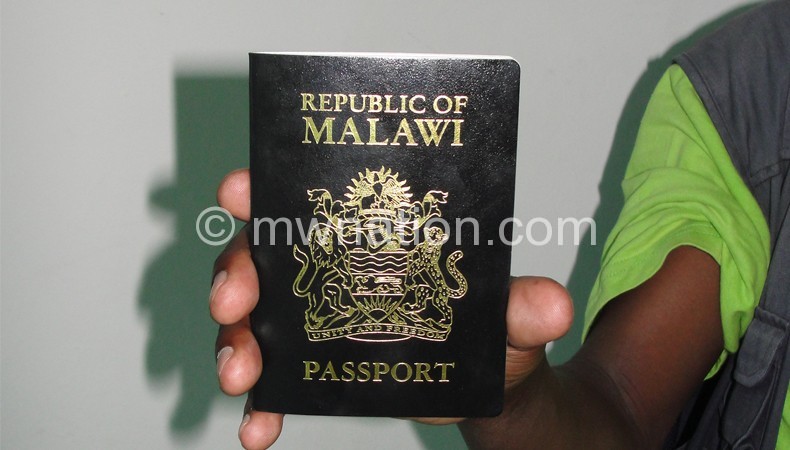E-passports to be launched in Nov
The Department of Immigration and Citizenship Service says it will this November start replacing Machine Readable Zone (MRZ) passports currently in use with electronic passports (e-passports).
The phasing out of all MRZ passports, which is expected to be completed in October 2020, will cost both new passport applicants and holders $100 (about K75 000) per normal passport.
In an interview yesterday, Immigration spokesperson Joseph Chauwa said the introduction of the new passport is aimed at meeting the International Civil Aviation Organisation (Icao) requirements which seek to enhance security on passports.

He said: “These passports will enhance security because they will have a computer chip device which will be storing holder’s face, fingerprints, iris and bio data. We will give passport holders a grace period of between six months and a year, and holders will be using both. But after the expiry of the grace period, we will completely phase out the MRZ passports.
“Most neighbouring countries like Zambia and Tanzania have already made the transition from MRZ passports to e-passports and some EU [European] countries have also put a regulation that they will be issuing visas to countries with e-passports only. So, if we don’t move, we won’t be allowed to go to other countries because we are not meeting the international standard.”
But reacting to the news, Consumer Association of Malawi (Cama) executive director John Kapito described the move as “a punishment to consumers”, saying the rolling out of the e-passports should have been free for passport holders.
He said: “Not long ago, passport holders were told to change their passports to biometrical. The introduction of e-passport should have been free to those that already have passports.
“They are changing things everyday and consumers are being told to be paying every time they are learning a new technology. Customers should not be punished for government’s delays in picking up technology.” In February 2010, Immigration also phased out then ordinary passports and introduced the MRZ passports which attracted criticism due to the slow pace of the transition process.





